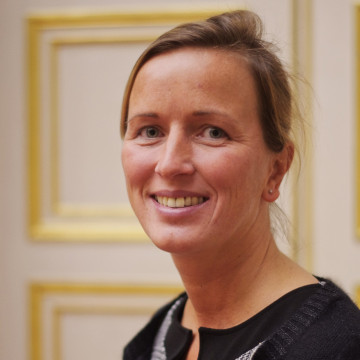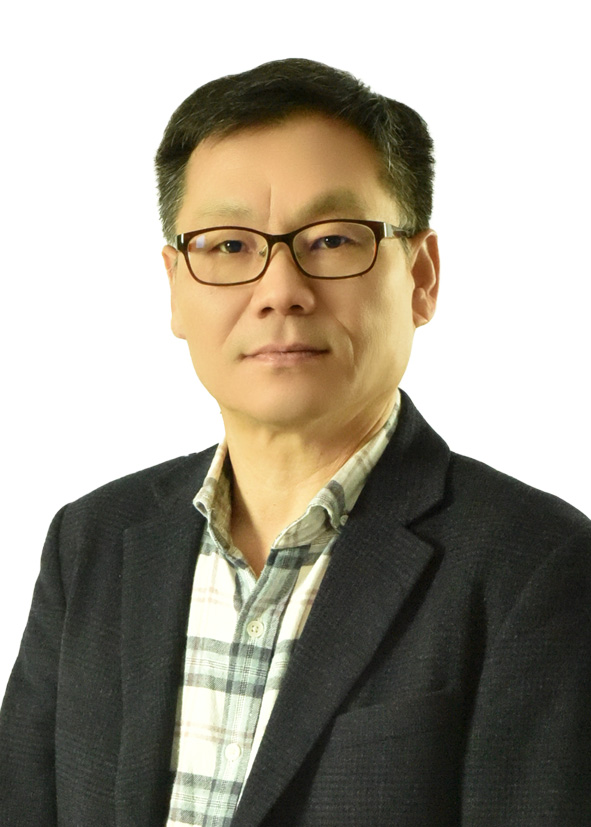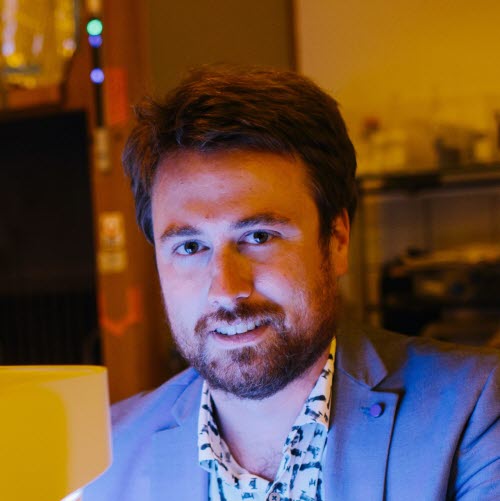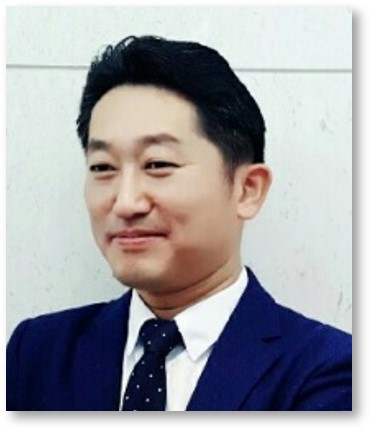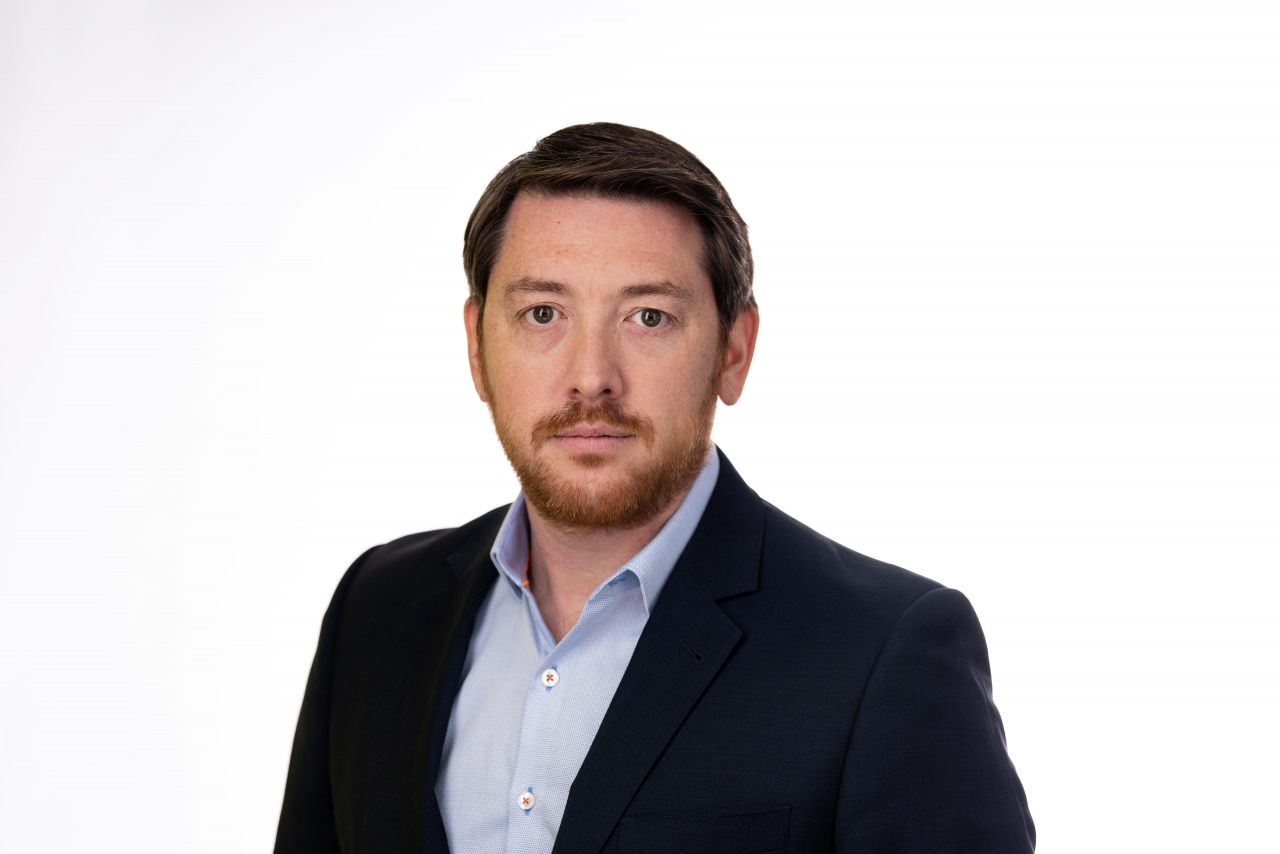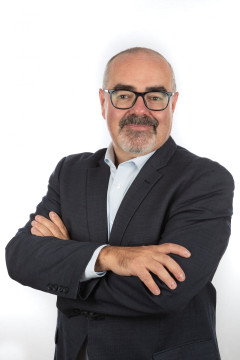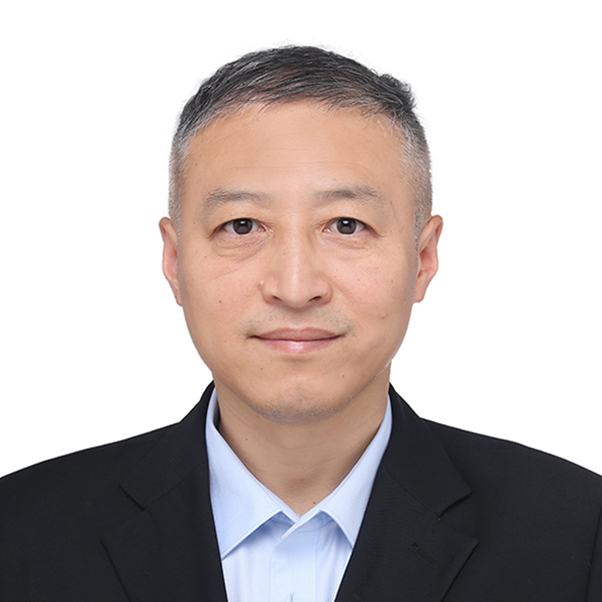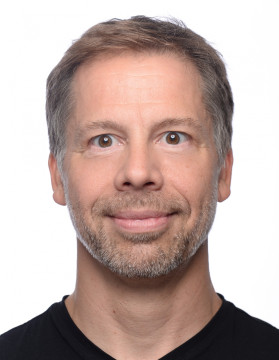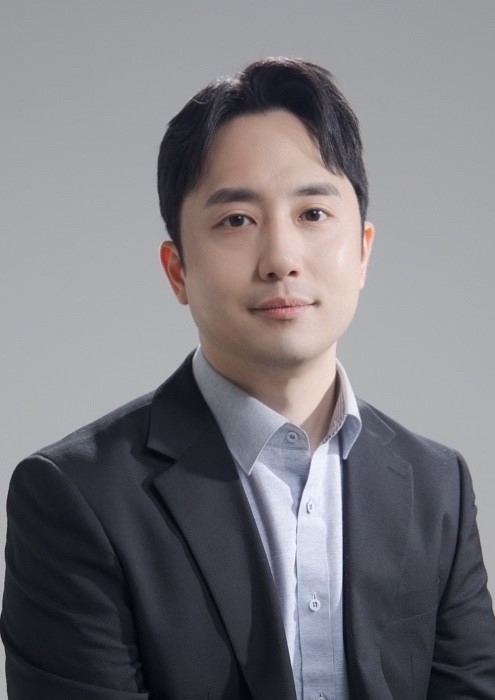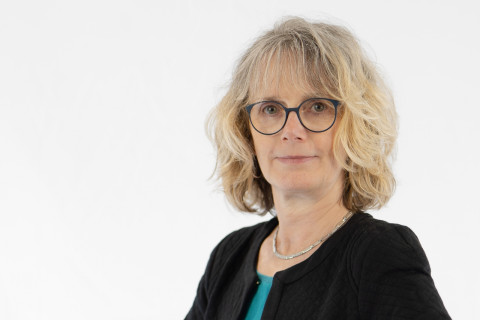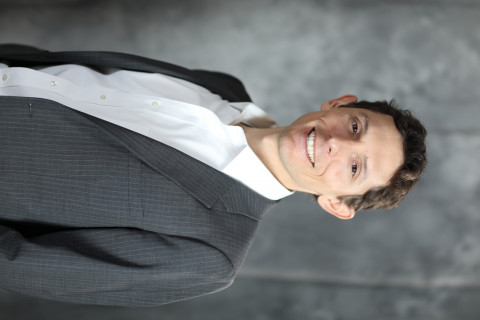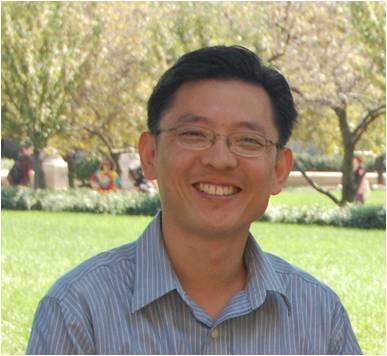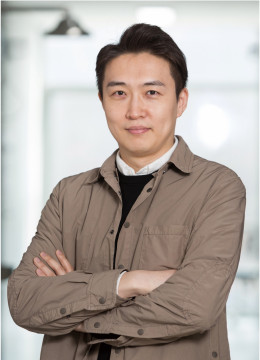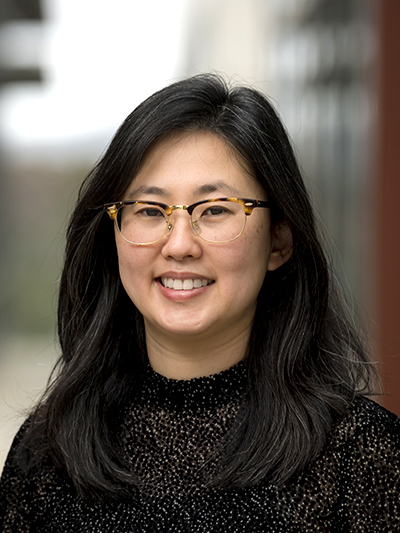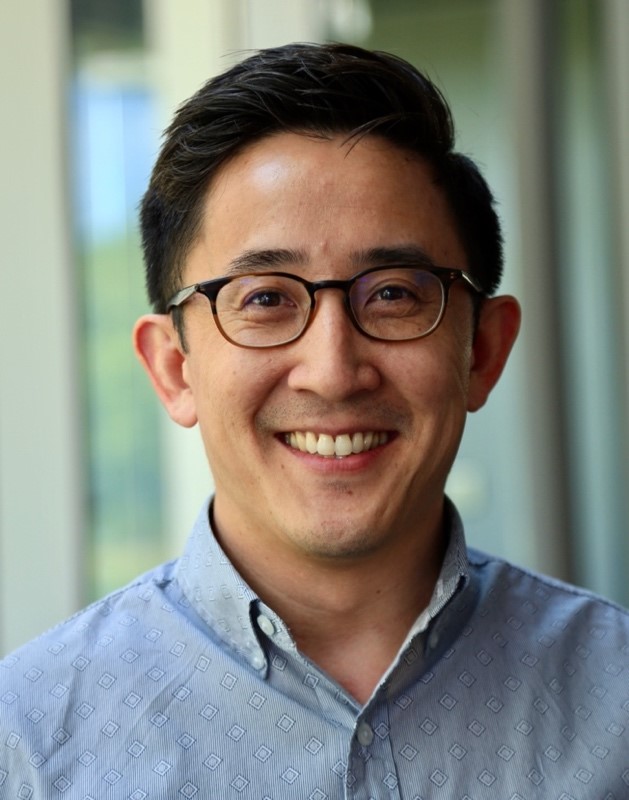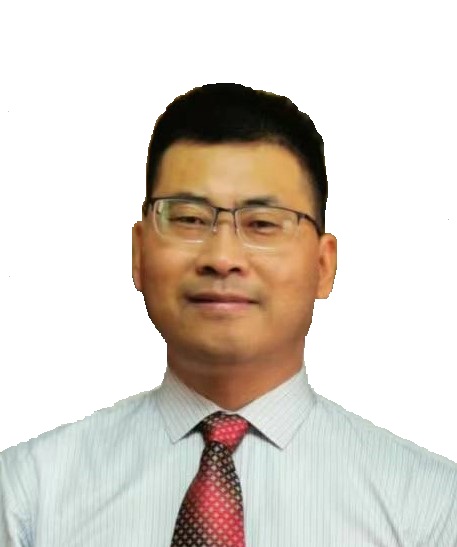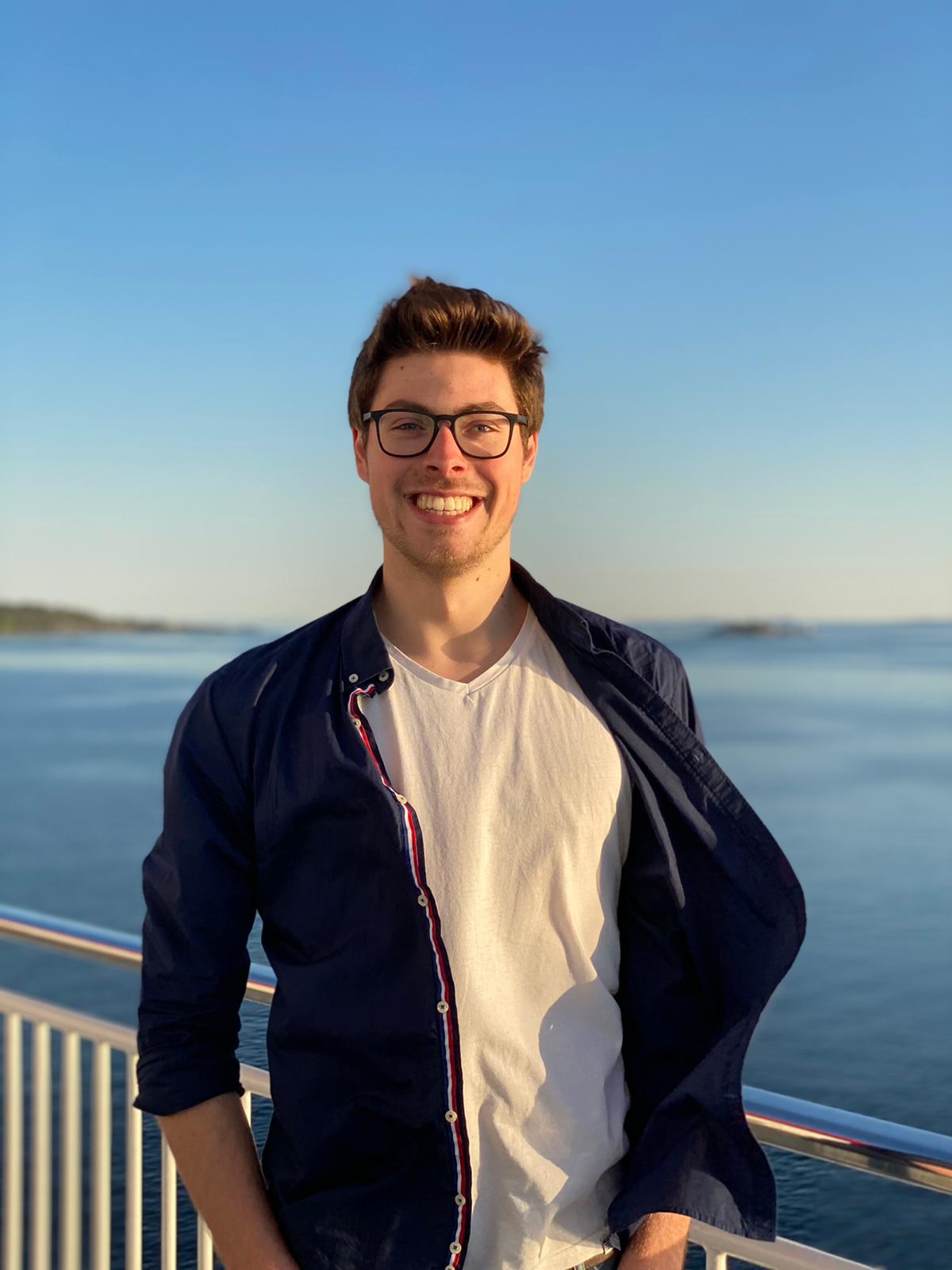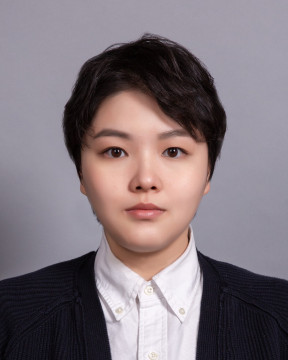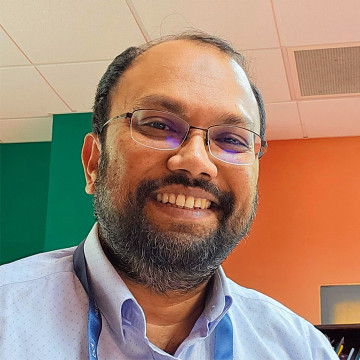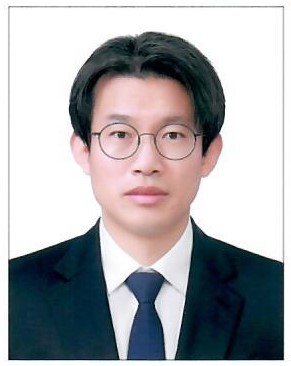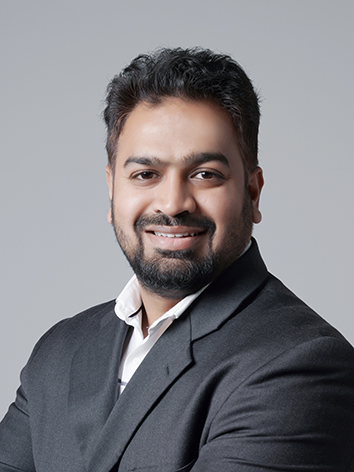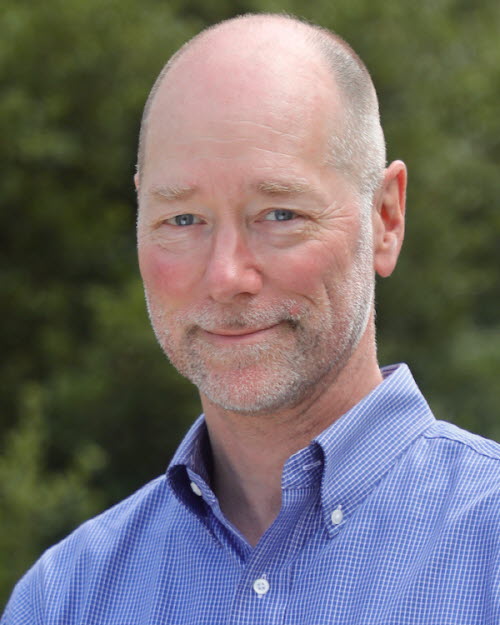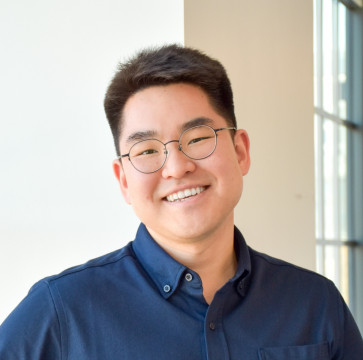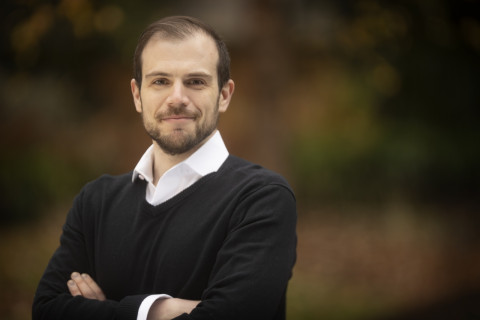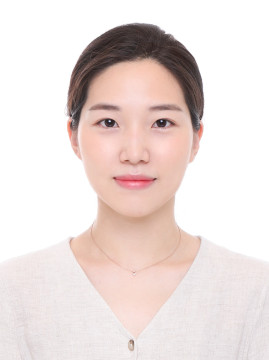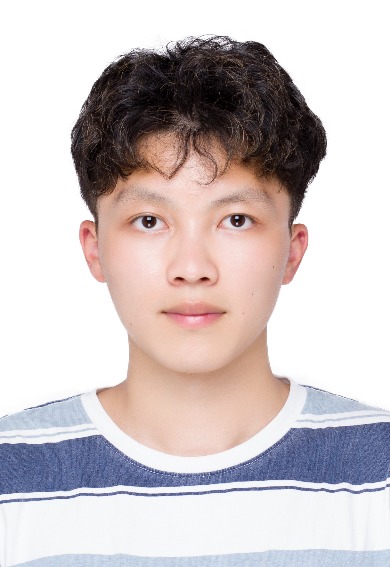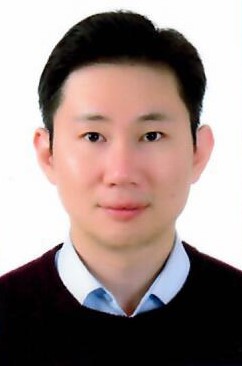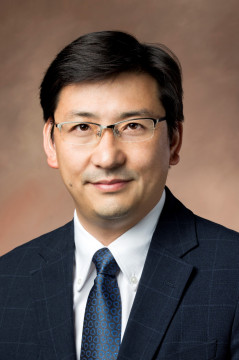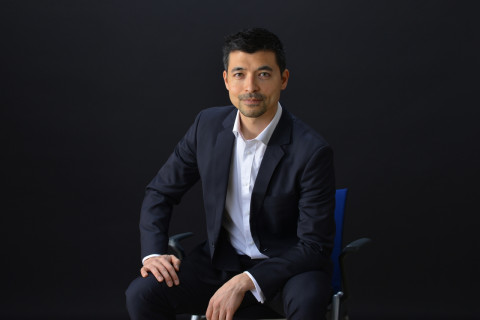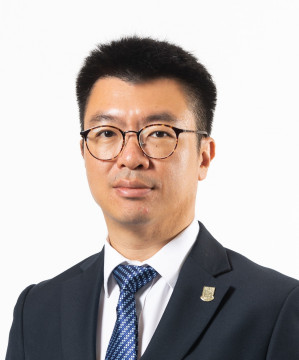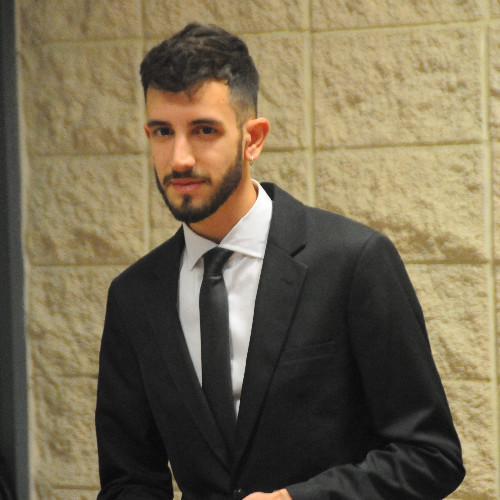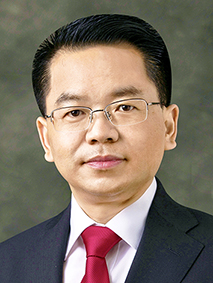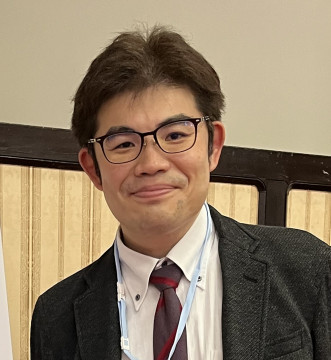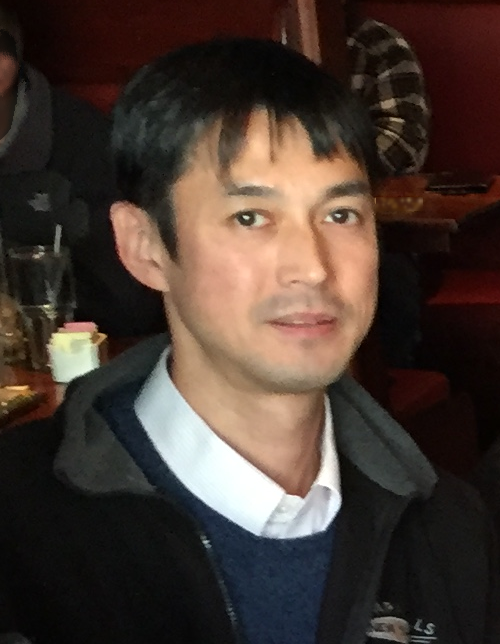Scientific Program
You can update your brief biography and profile picture on the [My Profile] page.
- Session TrackBiomaterials for industrial applications
- Session TitleBiomaterials' challenges: From academia to industry
- Session CodeSP-T09-0320
- Date & Time / RoomMay 28 (Tue) 16:30~18:00 / Room 320-B
- Organizer
-
Sandra Van Vlierberghe (Ghent University, Belgium)
- Chair
-
Sandra Van Vlierberghe (Ghent University, Belgium)
Insup Noh (Seoul National University of Science and Technology, Korea, Republic of)
- Keynote Speaker
-
16:30~16:55 : From BIO INK to BIO INCorporation: the launch of BIO INX Jasper Van Hoorick (BIO INX, Belgium)
- Invited Speaker
-
16:55~17:10 : Taking exosome therapeutics from academia to industry Yong Woo Cho (Hanyang University, Korea, Republic of)
17:10~17:25 : Academia, Start-Ups, CDMOs, CROs and Strategics: The challenge of translating innovative biomaterials to the clinic Chris Wattengel (Collagen Solutions, United Kingdom)
- Oral Presenter
-
17:25~17:35 : Evaluating Global Participation in Biomaterials Science: Addressing Disparities in Authorship and Editorial Boards Ana Maria Porras (University of Florida, USA)
17:35~17:45 : Double network bioadhesives for tissue adhesion Terry Steele (Nanyang Technological University, Singapore)
17:45~17:55 : The Impact of Salt on the Skin Adhesion Properties of Cosmetic Acrylic Polymer Gels Jihoon Ha (Kolmar Korea, Korea, Republic of)
- Session TrackBiomaterials for industrial applications
- Session TitleBiodegradable Metals for Medical Devices
- Session CodeSP-T09-0157
- Date & Time / RoomMay 29 (Wed) 9:30~11:00 / Room 320-B
- Organizer
-
Diego Mantovani (Laval University, Canada)
- Chair
-
Yufeng Zheng (Peking University, China)
Diego Mantovani (Laval University, Canada)
- Keynote Speaker
-
9:30~9:55 : Biodegradable metals advance into clinical applications Frank Witte (Berlin Charite Research Center - Dental Schoool, Germany)
- Invited Speaker
-
9:55~10:10 : Synthesis of Inorganic nanomaterials for Soft Bioelectronics SangIhn Han (Center for Biomaterials, Biomedical Research Division, Korea Institute of Science and Technology, Korea, Republic of)
10:10~10:25 : In vitro and in vivo assessment of biodegradable metals Regine Willumeit-Romer (Helmholtz-Zentrum Hereon GmbH, Germany)
- Oral Presenter
-
10:25~10:35 : Bio-integrative Fixation Implants: Post-Market Clinical Evaluation of 9,851 Cases Orahn Preiss-Bloom (OSSIO Ltd, Israel)
10:35~10:45 : HEALING OF BONE, AND ENHANCED JOINT FIXATION, WITH A NOVEL ADHESIVE, PHOSPHOSERINE CALCIUM PHOSPHATE, IN-VIVO & EX-VIVO Philip Procter (Uppsala University, France)
10:45~10:55 : In vivo studies of additive manufactured bioabsorbable magnesium/zinc scaffolds Donghui Zhu (Stony Brook University, USA)
- Session TrackBiomaterials for industrial applications
- Session TitleBiomedical technology based on rheology
- Session CodeSP-T09-0140
- Date & Time / RoomMay 28 (Tue) 13:40~15:10 / Room 320-B
- Organizer
-
Jun Dong Park (Sookmyung Women's University, Korea, Republic of)
- Chair
-
Atsushi Matsumoto (University of Fukui, Japan)
Jun Dong Park (Sookmyung Women's University, Korea, Republic of)
- Keynote Speaker
-
13:40~14:05 : Polymer Lung Surfactant: A Novel Synthetic Therapy for Respiratory Distress Syndrome You-Yeon Won (Purdue University, USA)
- Invited Speaker
-
14:05~14:20 : Development of Human Skin Model: Evaluation of Antibiotic Treatment and Transdermal Absorption Jae Jung Kim (Hongik University, Korea, Republic of)
14:20~14:35 : Understanding rheological behavior of thixotropic fluids during swallowing Seon Yeop Jung (Dankook University, Korea, Republic of)
- Oral Presenter
-
14:35~14:45 : New methodological insights into supply-agnostic control of collagen slurry rheology Emma Gough (University of Cambridge, United Kingdom)
14:45~14:55 : Rheology of entangled polyelectrolyte solutions in the semidilute regime studied by diffusing wave spectroscopy microrheometry Atsushi Matsumoto (University of Fukui, Japan)
- Session TrackBiomaterials for industrial applications
- Session TitleMicro- and Nanotechnology for clinical diagnostics
- Session CodeSP-T09-0367
- Date & Time / RoomMay 27 (Mon) 13:00~14:30 / Room 320-B
- Organizer
-
Jinmyoung Joo (Ulsan National Institute of Science and Technology, Korea, Republic of)
- Chair
-
Joo Hun Kang (Ulsan National Institute of Science and Technology, Korea, Republic of)
Ester J. Kwon (University of California San Diego, USA)
- Keynote Speaker
-
13:00~13:25 : Bioengineering Synthetic Biomarkers for Earlier Cancer Detection Gabe Kwong (Georgia Institute of Technology, USA)
- Invited Speaker
-
13:25~13:40 : Activity-based nanosensors for calpain activity as biomarkers in traumatic brain injury Ester J. Kwon (University of California San Diego, USA)
- Oral Presenter
-
13:40~13:50 : Nanomaterials enabled microfluidic chip for nucleic acid detection without pre-extraction Yu Zhang (Shandong University, China)
13:50~14:00 : Lab-in-a-fiber (LiF) device for detection and capturing of cancer cells João Carlos Varela (KTH Royal Institute of Technology/Science for Life Laboratory, Sweden)
14:00~14:10 : Putrescine binding mechanism with Human Serum Albumin Vida Dehghan Niestanak (University of Alberta, Canada)
14:10~14:20 : Metal-Organic Framework-Based Nanozymes for Colorimetric Detection of Alzheimer's Disease Biomarker Qingqing Fan (University of New South Wales, Australia)
14:20~14:30 : A CRISPR/Cas fluorescence aptasensor for the rapid and sensitive detection of ampicillin Minhaz Uddin Ahmed (Universiti Brunei Darussalam, Brunei Darussalam)
- Session TrackBiomaterials for industrial applications
- Session TitleBiomaterials-based startups for tissue engineering
- Session CodeSP-T09-0103
- Date & Time / RoomMay 29 (Wed) 13:40~15:10 / Room 320-B
- Organizer
-
Insup Noh (Seoul National University of Science and Technology, Korea, Republic of)
- Chair
-
Insup Noh (Seoul National University of Science and Technology, Korea, Republic of)
Xiumei Wang (Tsingua University, China)
Sandra Van Vlierberghe (Ghent University, Belgium)
- Keynote Speaker
-
13:40~14:05 : Control of in situ bioprinting for even cell distribution and mechanical properties of tissue engineering scaffold by 3D bioprinting pen Insup Noh (Seoul National University of Science and Technology, Korea, Republic of)
- Invited Speaker
-
14:05~14:20 : Colon-targeted S100A8/A9-specific peptide systems ameliorate colitis and colitis-associated colorectal cancer in mouse models Chul-Su Yang (Hanyang University, Korea, Republic of)
- Oral Presenter
-
14:20~14:30 : Multifunctional aligned nanofiber hydrogels deliver multimodal cell-regulatory signals for nerve regeneration Xiumei Wang (Tsinghua University, China)
14:30~14:40 : Microfluidic bioreactors for the sustainable development of local drug delivery systems William Oates (University of Manchester, United Kingdom)
14:40~14:50 : Flow-based downstream processing of in vitro transcribed mRNA and comparative assessment Vikas Sharma (Pohang University of Science and Technology, Korea, Republic of)
14:50~15:00 : PHAsT: revolutionizing medical devices Andrea Mele (University of Sheffield, United Kingdom)
15:00~15:10 : Has Determination of Biocompatibility Been Hijacked? Biomaterial Scientists Take Heed Elaine Duncan (Paladin Medical, Inc. & Adjunct Professor, F. Joseph Halcomb III, M.D. Department of Biomedical Engineering Pigman College of Engineering, University of Kentucky, USA)
- Session TrackBiomaterials for industrial applications
- Session TitleEmerging biomaterials: From bench to startup
- Session CodeSP-T09-0366
- Date & Time / RoomMay 27 (Mon) 14:40~16:10 / Room 320-B
- Organizer
-
Jinmyoung Joo (Ulsan National Institute of Science and Technology, Korea, Republic of)
- Chair
-
Jinmyoung Joo (Ulsan National Institute of Science and Technology, Korea, Republic of)
- Keynote Speaker
-
Michael J. Sailor (University of California San Diego, USA)
- Invited Speaker
-
15:05~15:20 : Soft Materials for Hard Problems in Healthcare: Hydrogels as Novel Medical Device Hyunwoo Yuk (SanaHeal, USA)
15:20~15:35 : Sustainable release of retinoic acid by porous silicon microparticles enhances the functional maturation of induced pluripotent stem cell-derived motor neurons Alec Smith (University of Washington, USA)
15:35~15:50 : Bridging Bench to Startup: Advancements in Emerging Biomaterials for Regenerative Medicine Eun Je Jeon (Cellartgen, Korea, Republic of)
- Oral Presenter
-
15:50~16:00 : SymClot: synthetic platelets for improved hemorrhage control Seema Nandi (SelSym Biotech, Inc., USA)
16:00~16:10 : Confined migration drives stem cell epigenetics and differentiation Xu Gao (National University of Singapore, Singapore)
- Session TrackBiomaterials for industrial applications
- Session TitleDrop-based microfluidic technologies
- Session CodeSP-T09-0218
- Date & Time / RoomMay 27 (Mon) 16:30~18:00 / Room 320-B
- Organizer
-
Hyomin Lee (POSTECH, Korea, Republic of)
- Chair
-
To Ngai (Chinese University of Hong Kong, Hong Kong SAR, China)
Siyoung Choi (KAIST, Korea, Republic of)
- Keynote Speaker
-
16:30~16:55 : Oil-eating bacteria lay down to stay fit Andrew S. Utada (University of Tsukuba, Japan)
- Invited Speaker
-
16:55~17:10 : Designing hydrogel-shelled microcapsules through multiple-emulsion templating Shin-Hyun Kim (KAIST, Korea, Republic of)
17:10~17:25 : All-aqueuous interfacial materials Ho Cheung Anderson SHUM (Advanced Biomedical Instrumentation Centre, Hong Kong SAR, China)
- Oral Presenter
-
17:25~17:35 : 3D microfluidic bioprinting of foams for hierarchical fabrication of skeletal substitutes Federico Serpe (La Sapienza University of Rome, Italy)
17:35~17:45 : Sustainable synthesis of calcium phosphate microparticles in 3D-printed droplet micro-reactors for precise morphological control Konstantinos Tsachouridis (the University of Manchester, United Kingdom)
- Session TrackBiomaterials for industrial applications
- Session TitleNano- and microencapsulation technologies
- Session CodeSP-T09-0149
- Date & Time / RoomMay 28 (Tue) 9:30~11:00 / Room 320-B
- Organizer
-
Jinwoong kim (Sungkyunkwan university/School of Chemical Engineering, Korea, Republic of)
- Chair
-
Ho Cheung Anderson SHUM (Advanced Biomedical Instrumentation Centre, Hong Kong SAR, China)
Shin-Hyun Kim (KAIST, Korea, Republic of)
- Keynote Speaker
-
9:30~9:55 : Stimuli-responsive smart microcapsules for controlled release Liang-Yin Chu (Sichuan University, China)
- Invited Speaker
-
9:55~10:10 : Formation of Controllable Complex Emulsions: From Functional Particles to Encapsulation Chang-Soo Lee (Chungnam National University, Korea, Republic of)
10:10~10:25 : Light-Driven Spatiotemporal Pickering Emulsion Droplet Manipulation Enabled by Plasmonic Hybrid Microgels To Ngai (Chinese University of Hong Kong, Hong Kong SAR, China)
- Oral Presenter
-
10:25~10:35 : Direct visualization of phase transformation between lamellae and bicontinuous cubic phase within microspheres Wenpeng Shan (Shanghai Institute of Ceramics, Chinese Academy of Sciences, China)
10:35~10:45 : Development of novel biomacromolecule microcapsules based on designed synthetic coacervates Akihiro Kishimura (Faculty of Engineering, Kyushu University, Japan)
10:45~10:55 : Redox-responsive disulfide polymer synthesized by the oxidation polymerization of a dithiol trehalose derivative for drug delivery applications Naozumi Teramoto (Chiba Institute of Technology, Japan)

 1
1 


